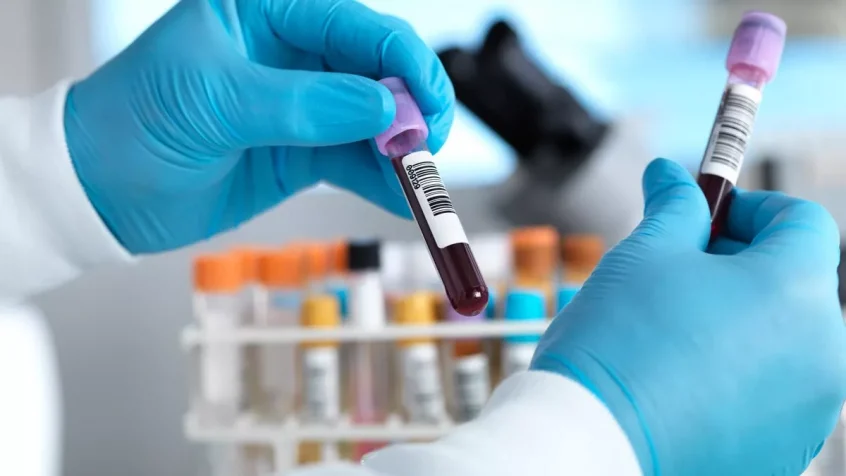Early diagnosis of cancer is so important, so it’s cheering to hear of a study that could lead to faster treatment – and save lives. It involved a blood test for more than 50 types of cancer, which then correctly identified two out of every three cancers.
More than 5,000 people were tested who’d visited their GP with suspected symptoms. The test also correctly identified the site of cancer in 85% of those cases.
The Symplify study is the first large evaluation of a multi-cancer early detection (MCED) test in people who went to their GP for a diagnosis for suspected cancer.
The study enrolled 6,238 patients, aged 18 and older, with symptoms suspicious for possible gynaecological, lung, lower or upper gastrointestinal cancer, or with non-specific symptoms, in England and Wales.
The most commonly reported symptoms were unexpected weight loss (24.1%), change in bowel habit (22%), post-menopausal bleeding (16%), rectal bleeding (15.7%), abdominal pain (14.5%), pain (10.6%), difficulty swallowing (8.8%) and anaemia (7.1%). Participants provided a blood sample, from which DNA was isolated and tested.
Brian Nicholson co-lead investigator at Oxford University said: “The high overall specificity, positive predictive value, and accuracy of the cancer signal detection and cancer signal origin prediction that was reported across cancer types indicate that a positive MCED test could be used to confirm that symptomatic patients should be evaluated for cancer before pursuing other diagnoses.”
Within the study, 368 (6.7%) of the 5,461 patients who could be evaluated were diagnosed with cancer through standard care, the most common being colorectal (37.2%), lung (22%), uterine (8.2%), oesophago-gastric (6%) and ovarian (3.8%).
The MCED test was developed by US healthcare company, GRAIL, and it detected a cancer signal in 323 people. Cancer was diagnosed in 244, resulting in a positive predictive value of 75.5%.
“This is a fantastic example of how academia and industry can work together for patient benefit, recruiting over 6,000 patients to Symplify in under six months and within less than a year of launching the project,” commented Professor Helen McShane, Director of the NIHR Oxford Biomedical Research Centre.
“We are committed to diagnosing cancers earlier, when they can be cured, and this study is an important step on that journey. Symplify also shows that we can run trials at scale using digital systems to deliver research quickly and cost effectively, with the help of the NIHR’s Clinical Research Network.”
The MCED test providing early detection of cancer could be a light at the end of the tunnel.

